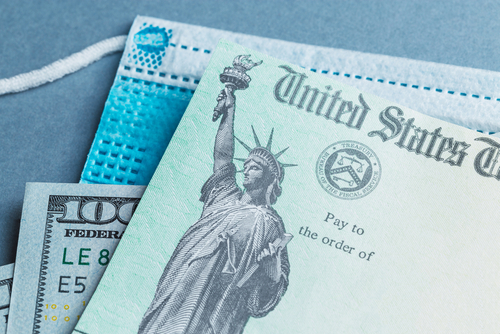
Congress passed a $900 billion pandemic relief package Monday, which includes legislation that will provide more than $73 billion to the Department of Health and Human Services (HHS) for federal response efforts.
While much attention has been put on the $600 direct stimulus payment and $300 per week supplemental unemployment benefit being offered to most Americans, the compromise that embodied the 5,593-page legislation also yielded major benefits for several federal agencies under the HHS: the Centers for Disease Control and Prevention, Assistant Secretary for Preparedness and Response, Public Health and Social Services Emergency Fund and the National Institutes of Health all stand to receive serious funding injections to combat the ongoing pandemic.
“The health care provisions in the omnibus provide the resources needed to bring an end to the coronavirus pandemic, create new patient protections, and invest in our nation’s public health programs,” Energy and Commerce Committee Chairman Frank Pallone, Jr. (D-NJ) and Health Subcommittee Chairwoman Anna G. Eshoo (D-CA) said in a joint statement. “The agreement includes vital funding to support the rapid and equitable distribution of COVID-19 vaccines, as well as critically needed resources to support states with efforts to increase testing, contact tracing, surveillance, and mitigation activities to limit the spread of the virus.”
The HHS funding will help support public health initiatives, research and development, mental health services, child care support, and more. Specifics require an agency by agency breakdown, though.
Take the FDA, where a mere $55 million was allotted for efforts to develop and review medical countermeasures, devices, therapies, and vaccines to combat SARS-CoV-2 and to support medical product supply chain monitoring and other public health research and response investments. In contrast, the Assistant Secretary for Preparedness and Response will receive $22.945 billion, with $3.25 going toward the Strategic National Stockpile and the remainder going to the Biomedical Advanced Research and Development Authority (BARDA) to support manufacturing and procurement of vaccines, therapeutics, and ancillary supplies their administration requires.
Another major recipient is the Public Health and Social Services Emergency Fund, which will gain $25.4 billion to support testing and contract tracing efforts, as well as reimbursement of healthcare-related expenses and lost revenue caused by COVID-19. The bulk of this will go to contact tracing and testing, which lawmakers hope will help effectively monitor and suppress the virus. To this end, $2.5 billion of the funds will improve testing capabilities in high risk and underserved populations. Another $3 billion will be used to reimburse hospitals, and health care providers hit hard by the public health emergency.
The CDC stands to gain $8.75 billion to support federal, state, local, territorial, and tribal public health agencies in distributing, administering, monitoring, and tracking coronavirus vaccination and guarantee that vaccines reach high-risk and underserved populations. The remaining $1.25 billion of the allotted funds will go to the NIH to support research and clinical trials assessing the long term effects of COVID-19. This will also maintain support for the Rapid Acceleration of Diagnostics for COVID-19.
The passage of this funding comes when the United States is facing a massive surge in COVID-19 cases and deaths. According to the latest data from Johns Hopkins University, the United States has now hosted more than 18 million cases of the virus, and nearly 320,000 people have died as a result. Last week, the United States topped a single day caseload of more than 250,000 new infections, and according to the CDC, the last 24 hours have brought another more than 197,000 cases.
As to the relief package, with passage through Congress, it has been sent to President Donald Trump for signature. He is expected to sign it sometime this week.




